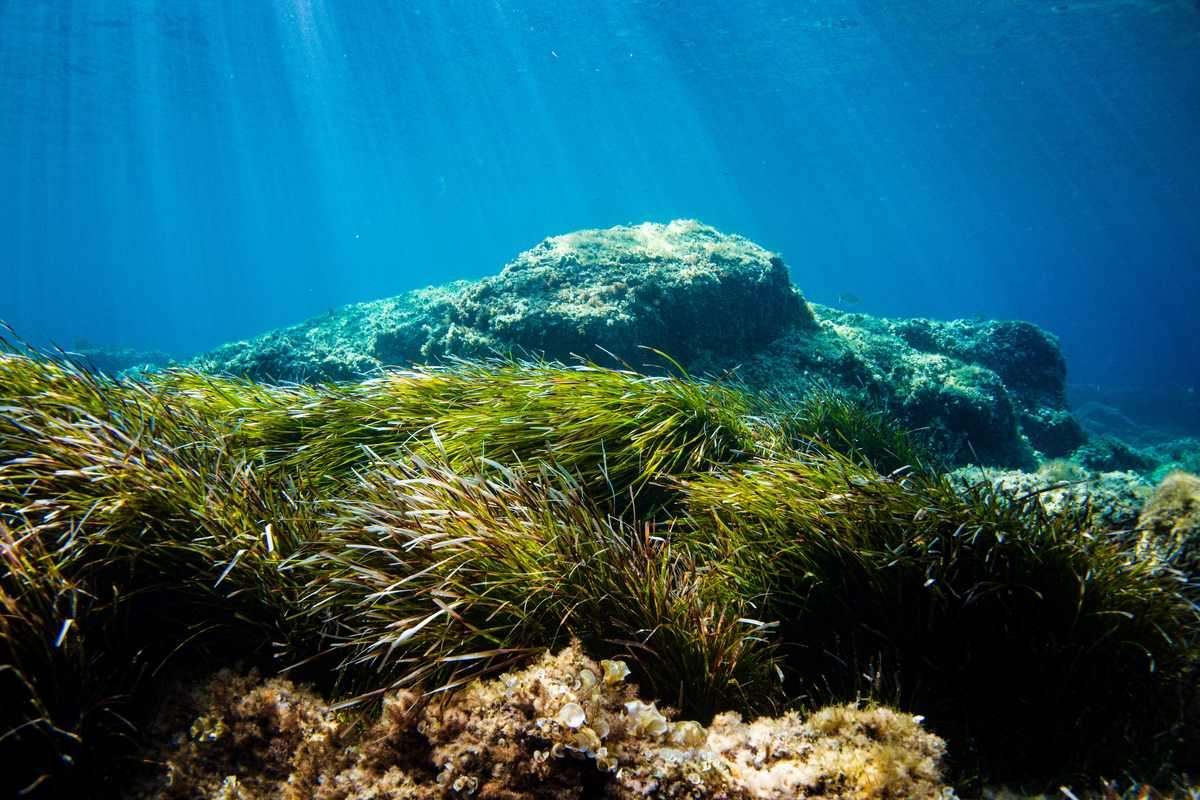Tiny Italian Town Dug Up an Extremely Rare Roman Temple while Trying to Build Supermarket
A pagan-Roman temple, known as a Capitolium, dedicated to Jupiter, Minvera, and Juno has Roman researchers very excited.

To any government reading, there's a plant that provides habitat for nearly all the species of the sea, anchors the sediment on the seafloor, dissipates wave energy, regulates ocean acidity, and that holds 35-times more carbon per cubic inch of rootstock than tropical rainforest—and best of all, it's neither fictional nor rare.
Posidonia oceanica, or seagrass, plays all these important roles for marine ecosystems, and scientists and conservationists working at the Med Sea Foundation on the island of Sardinia, Italy, believe that by restoring their seagrass meadows they can safeguard their own coasts, as well as the world, from climate change.
The new project launched by Med Sea looks to plant 1 million seagrass plants by 2050 across 19 square miles (50 square kilometers) of coastline on Sardinia's Sinis Peninsula—and also throughout the Mediterranean.
Seagrass accounts for one-tenth of all the carbon stored in the ocean, but they are fragile ecosystems and are easily damaged by human activities.
To that end, Med Sea has paired their planting with the installation of 60 anti-trawl barriers which are massive blocks of concrete or stone that will destroy the trawl nets and anchors of any boat that tries their hand at this illegal coastal fishing method.
It's a proven method of stopping fish poaching, and has already restored fish stocks and marine ecosystems off the coast of Tuscany, where in true Tuscan fashion, the barriers were made of Carrara marble, and carved into beautiful statues.
Posidonia oceanica also plays an indispensable role in the protection of coastline from wave energy, as well as the formation and consolidation of the sediment and sand that form the beaches which draw over two million tourists to the island every year.
Med Sea is receiving support for their planting enterprise from the University of Exeter in the UK, an electric-vehicle racing organization called Extreme-E, and Sotheby's Auctioneers.
Other countries are also recognizing the value of seagrass and restoration activities are underway, or perhaps have already concluded, in Wales, and in the state of Virginia.
WATCH a mini-doc about the project with great underwater video quality…
SHARE This Good Ocean News With Your Friends…
Be the first to comment